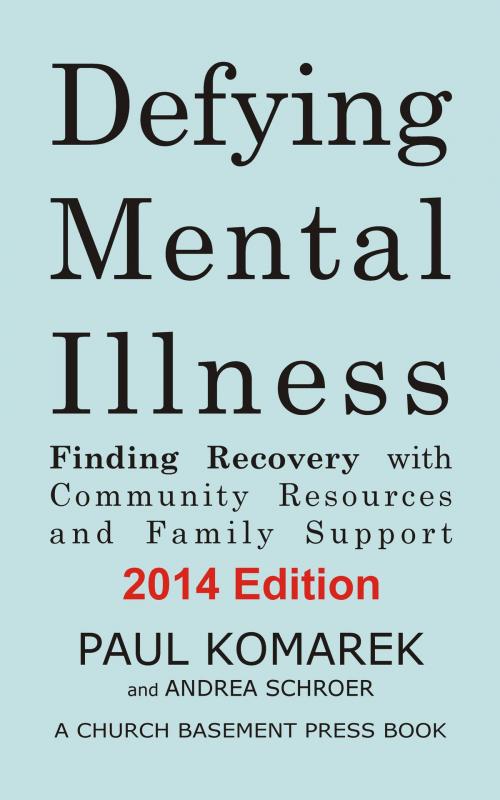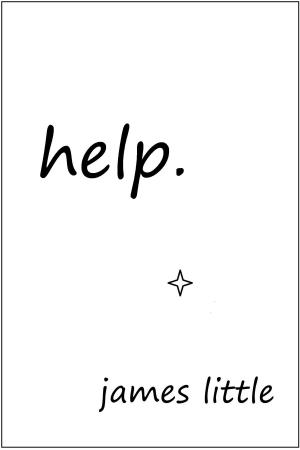Defying Mental Illness: Finding Recovery with Community Resources and Family Support
Nonfiction, Health & Well Being, Psychology, Pathological Psychology, Medical, Ailments & Diseases, Mental Health| Author: | Paul Komarek | ISBN: | 9781452440668 |
| Publisher: | Church Basement Press | Publication: | September 26, 2011 |
| Imprint: | Smashwords Edition | Language: | English |
| Author: | Paul Komarek |
| ISBN: | 9781452440668 |
| Publisher: | Church Basement Press |
| Publication: | September 26, 2011 |
| Imprint: | Smashwords Edition |
| Language: | English |
Imagine a book that accomplishes for mental illness what the Big Book did for sober recovery.
Defying Mental Illness makes mental health disorders and treatment understandable. It takes the fear and mystery out of mental illness along with the technical jargon. This approach keeps people focused on recovery, which is more about finding a way to move forward than it is about the diagnosis. The book helps people with symptoms and family members collaborate and support each other. It is suitable for community outreach work and as a basic textbook.
Simply written, consensus-based, positive and complete, the book covers schizophrenia, depression, post-traumatic stress disorder, childhood mental illness, suicide prevention and more.
The book builds recovery with strengths that endure despite the presence of symptoms.
It's what a person needs to know to get started with recovery, what family members need to know to support recovery, and what faith-based and community groups need to know to help the people they serve.
Revised and updated for 2014, the book is structured to support a simple planning strategy.
The first section helps people understand what they are facing. It includes brief descriptions of mental illness symptoms such as hallucinations, delusions, mood swings and other behavior changes, and describes major mental health disorders including schizophrenia, bipolar disorder, depression, anxiety disorder, post-traumatic stress disorder, and borderline personality disorder. The authors use a developmental approach to childhood mental illness, contrasting ordinary childhood patterns with the extreme symptoms that may require intervention. The book suggests using benign, safe parenting techniques that improve structure and reduce stress, and supports a thoughtful approach to initiating treatment. Also covered are developmental disabilities like autism and fetal alcohol syndrome, as well as special education, including individualized education plans (IEPs) and so-called 504 plans. A chapter on treatment discusses therapy and medication, offering brief notes on various categories of medication. The book emphasizes the need to understand risks and benefits when deciding about any course of treatment.
Subsequent sections focus on locating allies to promote recovery, finding resources to support recovery, planning both long-term and short-term, and following the recovery plan. The authors discuss planning for safety in advance of a mental health crisis, responding to a person in crisis, assessing risk of violence, and preventing suicide. The book suggests ways to help people who become involved in the criminal justice system, and covers involuntary hospitalization and guardianship. Further chapters discuss ways to locate treatment, find or retain housing, maintain employment or access vocational rehabilitation services. There is coverage of Social Security and SSI disability benefits and claims process, plus information about Medicare and Medicaid.
Imagine a book that accomplishes for mental illness what the Big Book did for sober recovery.
Defying Mental Illness makes mental health disorders and treatment understandable. It takes the fear and mystery out of mental illness along with the technical jargon. This approach keeps people focused on recovery, which is more about finding a way to move forward than it is about the diagnosis. The book helps people with symptoms and family members collaborate and support each other. It is suitable for community outreach work and as a basic textbook.
Simply written, consensus-based, positive and complete, the book covers schizophrenia, depression, post-traumatic stress disorder, childhood mental illness, suicide prevention and more.
The book builds recovery with strengths that endure despite the presence of symptoms.
It's what a person needs to know to get started with recovery, what family members need to know to support recovery, and what faith-based and community groups need to know to help the people they serve.
Revised and updated for 2014, the book is structured to support a simple planning strategy.
The first section helps people understand what they are facing. It includes brief descriptions of mental illness symptoms such as hallucinations, delusions, mood swings and other behavior changes, and describes major mental health disorders including schizophrenia, bipolar disorder, depression, anxiety disorder, post-traumatic stress disorder, and borderline personality disorder. The authors use a developmental approach to childhood mental illness, contrasting ordinary childhood patterns with the extreme symptoms that may require intervention. The book suggests using benign, safe parenting techniques that improve structure and reduce stress, and supports a thoughtful approach to initiating treatment. Also covered are developmental disabilities like autism and fetal alcohol syndrome, as well as special education, including individualized education plans (IEPs) and so-called 504 plans. A chapter on treatment discusses therapy and medication, offering brief notes on various categories of medication. The book emphasizes the need to understand risks and benefits when deciding about any course of treatment.
Subsequent sections focus on locating allies to promote recovery, finding resources to support recovery, planning both long-term and short-term, and following the recovery plan. The authors discuss planning for safety in advance of a mental health crisis, responding to a person in crisis, assessing risk of violence, and preventing suicide. The book suggests ways to help people who become involved in the criminal justice system, and covers involuntary hospitalization and guardianship. Further chapters discuss ways to locate treatment, find or retain housing, maintain employment or access vocational rehabilitation services. There is coverage of Social Security and SSI disability benefits and claims process, plus information about Medicare and Medicaid.















